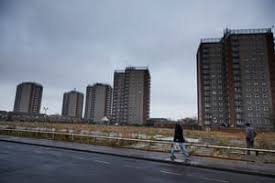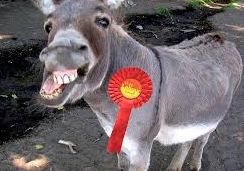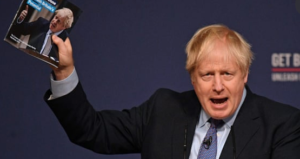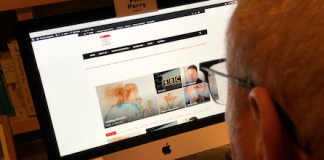- We are NOT devo! - 7th August 2020
- Left hand drive - 3rd July 2020
- Incoming - 13th June 2020

Our correspondent The Rebel tries to understand why this is an election like no other as the Prime Minister attempts to present himself in the mould of Churchill although he is a serial philanderer and been accused of lying, and the hard left leader of the opposition has put his party way behind in the polls.
The Rebel is a leading figure close to senior politicians in London as well as Cardiff Bay, and will always give readers the inside track on what is being discussed in the corridors of power.

Is a historical re-allignment underway in British politics?
Recent polls suggest it may be.
They put the Tories an average of 13 points ahead of Labour UK-wide, with one being spun by The Times recently as the lead ‘narrowing’ because it was down from 17 points before, and constituencies which have long returned Labour MPs appearing to lean towards the Tories.
An IPSOS Mori poll put the Tories across the UK 16 points ahead of Labour and easily taking the ultra-Leave seat of Great Grimsby despite the Labour MP there sitting on a majority of 2,565.

The Lincolnshire constituency is an interesting straw in the wind.
Past MPs have included Anthony Crosland, who wrote one of Labour’s most important post-war texts, “The Future of Socialism”, and Austin Mitchell, who once claimed that Grimsby would vote Labour even if the party put up a “raving alcoholic sex paedophile”.
Yet the seat could be about to fall to the Tories.
A poll by Survation suggests that the Conservatives lead Labour by fully 13 points.

The big lead of the Tory candidate, Lia Nici, implies not only that Labour are in danger of losing one of their most dependable seats, but it also suggests that Boris’s targeting of working-class, pro-Brexit UK areas in the north of England and the Midlands could well succeed.
This is the so-called ‘Red Wall’ and Tory strategists, including Bojo’s staring-eyed adviser Dominic Cummings, have long worked on how to assault it.
A poll by Opinium gave the Tories a 19-point lead, and another survey (which was the first seat projection model) suggests the Conservatives are on course to win 349 seats, enough for a significant majority.


This ‘race’ is getting boring now.
The Tory manifesto launch today has been described as “restrained” in the Press with the plans for £2.9 billion in extra spending being “dwarfed” by Labour’s £83 billion promise.
But that’s fine for Bojo and his high command – uppermost in their minds was to avoid the disaster of the ‘dementia tax’ at the last General Election.

Business leaders I have spoken to (who employ thousands of people in the UK) are gobsmacked by what Labour are offering voters and how much it will cost them.
Some have even moved their businesses offshore to escape the clutches of Jezza.
In its ambitions for public spending, including higher public sector pay, raising the increase in NHS spending from 3.4 per cent to 4.3 per cent a year, abolishing tuition fees, the £500 million-plus annual running costs of British broadband and £10.8 billion a year for free social care for the over-65s, the Labour manifesto is unbelievable to them.
The Labour plans will add more than £80 billion a year to day-to-day government spending by 2023-4, on top of which there will be a £400 billion national transformation fund.

The latter will be funded by borrowing, the former by a very precise £82.9 billion of additional taxes, equivalent to 4 per cent of gross domestic product.
The 45 per cent income tax rate applicable at £80,000 and the new ‘super-rich’ 50 per cent rate at £125,000 will raise just £5 billion a year, and putting corporation tax back up to 26 per cent and a new unitary tax on multinationals will raise another £30 billion (even if everyone pays them which they won’t).
There will be taxes on capital gains and dividends worth £14 billion a year, and a financial transactions tax of £8.8 billion.


There is also, of course, the biggest programme of nationalisation since the Attlee government of 1945-51.
Private landlords will face rent controls, and there will be a pilot programme to test whether a universal basic income works.
The 32-hour week proposed by the bearded lefty is also a major source of concern for business leaders.

Labour’s undertaker shadow chancellor John McDonnell, the policy’s architect, commissioned a sympathetic academic expert, the eminent economic historian Lord Skidelsky, to examine the policy, which he did in a paper earlier this year called ‘How to Achieve Shorter Working Hours’, published by the Progressive Economy Forum.
Skidelsky declared that “capping working hours nationwide, on the lines of France’s 35-hour week, is not realistic or even desirable, because any cap needs to be adapted to the needs of different sectors”.

Boris was laughed at in the ITV leaders’ debate when he said that telling the truth was important — he has been hauled up for telling porky pies even about pork pies.
We seem to have a choice in this election between a right wing Tory accused of telling lies and a hard left Labour leader accused of being an anti-Semite.
Voters appear to have made up their minds…
 Our Editor Phil Parry’s memories of his extraordinary 36-year award-winning career in journalism as he was gripped by the incurable disabling condition Hereditary Spastic Paraplegia (HSP), have been released in a major new book ‘A GOOD STORY’. Order the book now! The picture doubles as a cut-and-paste poster!
Our Editor Phil Parry’s memories of his extraordinary 36-year award-winning career in journalism as he was gripped by the incurable disabling condition Hereditary Spastic Paraplegia (HSP), have been released in a major new book ‘A GOOD STORY’. Order the book now! The picture doubles as a cut-and-paste poster!









